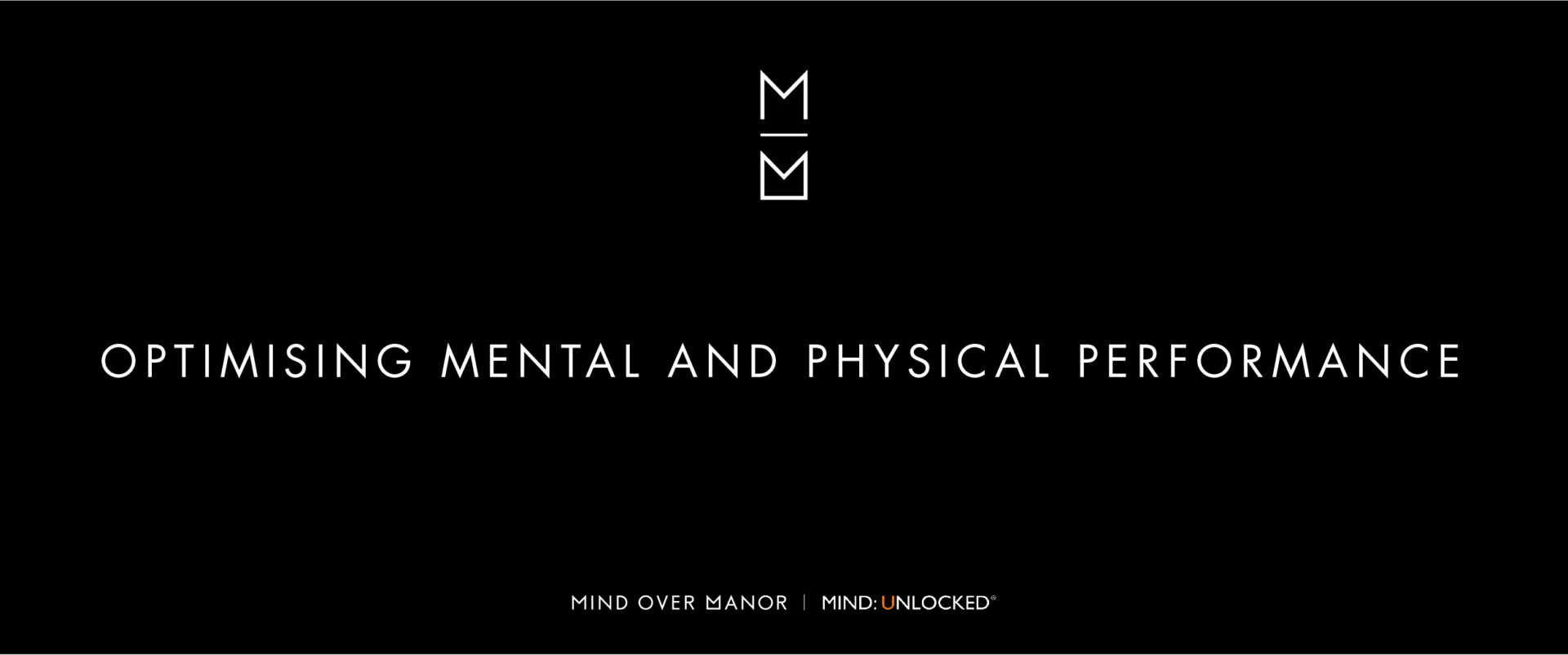
A healthy mind is as important as a healthy body. Fact.
In fact they go hand in hand, one can boost the other in a virtuous cycle or one can derail the other in a vicious cycle. Here we touch on the science behind this and share some practical things you can do to trigger that virtuous cycle that leads to sustainable health and vitality. It’s really your choice, virtuous or vicious…
I’m Niraj Shah, the founder of Mind: Unlocked – one of London’s leading mental wellbeing movements. We partner with the likes of Asics, Silicon Valley’s Transformative Technology Lab, the UK’s mental health charity Mind and now – I’m proud to say – Manor.
Manor are committed to building healthy bodies and minds. Our work together is part of that commitment and we’re running a series of interactive workshops on topics like technology, sleep and more. So let’s talk about why a cultivating a healthy body is also beneficial to creating a healthy mind. Then we’ll explore how our minds affect our bodies.
MENTAL BENEFITS OF EXERCISE
One of the most commonly perceived mental benefits of exercise is stress relief. During and after exercise endorphins are released in our bodies and one of their effects is to trigger a positive feeling. Other benefits of exercise range in the short term from helping to alleviate anxiety, slowing down cognitive decline and boosting memory to in the medium to long term potentially boosting confidence through increased self-worth and self-body image.
The clinical evidence around this is limited, partly because it’s not the sort of trial to get funded, but the abundance of anecdotal stories and our own experiences would corroborate those benefits. We go into much more detail on this in our sessions, but to keep it light here we won’t. You don’t have to take our word for it though, Dr Wendy Suzuki, professor of neural science and psychology at New York University says “Working out is one of the most powerful things you can do to strengthen the brain. A single workout triggers physiological changes that improve mental function”.
HOW OUR MINDS AFFECT OUR BODIES
What is less known though is that exercise, whilst also doing all of the above, can also be a stressor on our bodies. The more intense the exercise, the more elevated the stress responses triggered are. In isolation exercise is far from a bad thing due to the myriad of positive effects mentioned above but when we pile intense workouts on top of stressful lives and stressful situations it’s important to be aware of the bigger picture and effects on our overall health.
Stress responses, aka “fight or flight” responses, release adrenaline and cortisol into our system – hormones that raise blood pressure, raise heart rate, send blood from the brain to our extremities, constrict our blood vessels and release glucose into our blood. Overexposure to these can be dangerous as our baseline blood pressure, blood sugar and heart rates get raised – all factors linked to increased risk of cardiovascular diseases.
So what do we do about it? The answer definitely isn’t to stop exercising! Exercise is a short term stressor, but lack of exercise is definitely bad for our long term health. We have less choice about the presence of other big and small stressors in our lives such as pressures from work, relationships, parenthood, distraction triggered by technology and any situation that annoys or stresses us and so on.
Most of those are going to show up whatever we do because of the ways that life works in our modern Western society, so we’re very likely dumping a regular dose of adrenaline and cortisol into our bodies. The only sensible answer is to build regular recovery procedures into our lives to counteract the effects of adrenaline and cortisol.
The most relevant research in this area was conducted at Harvard Medical School by Dr Herbert Benson, physician and founder of Massachusetts General Hospital’s Institute for Mind/Body Medicine. He coined the term the “relaxation response”, defined as “your personal ability to encourage your body to release chemicals and brain signals that make your muscles and organs slow down and increase blood flow to the brain”. It’s essentially the opposite reaction to fight or flight and counteracts the effects of adrenaline and cortisol. We go into more depth on all of this here.
CREATING A HEALTHY MIND
Dr Benson identified a number of solutions that he proved elicited the relaxation response including tai chi, qi gong, massage, yoga & meditation. All considered mindful activities because of their focus on presence and acceptance, and all areas in which experienced practitioners will readily admit the main reason they practice is for the mental benefits.
Of all of these our favourite by far is using meditative techniques. This is partly because they’re the most accessible in that you don’t have to go anywhere, wear anything or need equipment – you just need yourself, your breath and a little bit of correct instruction to get started – and partly because there’s a whole host of extra benefits related to attention, focus, sleep and creativity to be gained.
This is what we cover in our sessions and you’ll find these ideas and techniques increasingly creeping into your experiences at Manor. For a quick start you can check out this guide on Mind Body Green. 10 minutes a day, 3-4 times a week is a good, manageable amount to start with. If you’re more interested in working with one of our coaches one to one to accelerate your progress please get in touch.
By learning some basic meditation techniques and incorporating them into our lives in a manageable way, we can use our minds to affect our bodies. This is why proper recovery is critical to our ongoing health, productivity & performance.











